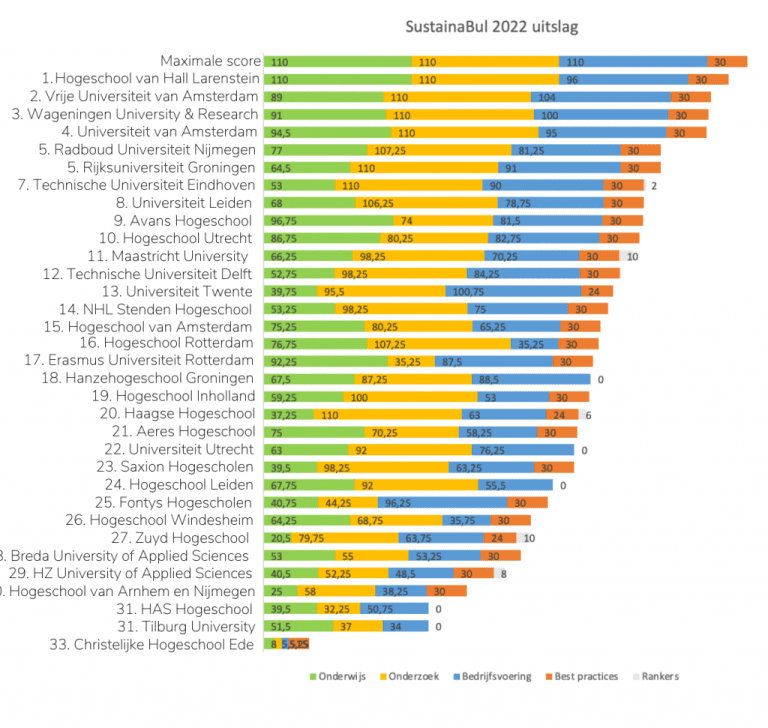University of Applied Sciences ranks most sustainable
Van Hall Larenstein University of Applied Sciences is the most sustainable institution in Dutch higher education, winning the annual SustainaBul. The numbers two and three are the Vrije Universiteit Amsterdam and Wageningen University. TU Delft is ranked 12 out of 33. It scores especially well on sustainability research. In education and to a lesser extent in business operations, the score is lower.
- Read more on TU Delft and the SustainaBul here.
Since 2012 the idealistic ‘Students for Tomorrow’ award the so-called SustainaBul. They make a ranking of universities and educational institutions, in which they pay attention to sustainability in education, research and business. Special initiatives (best practices) are also included in the ranking. By sustainability, the students mean not only environmental objectives such as combating climate change, but also, for example, the fight against poverty and hunger and the promotion of gender equality.
For the ranking, the students first look at what they themselves can find in terms of information on sustainability, after which they ask the educational institutions for a response. After the responses from the universities and universities of applied sciences, they determine the final order. (HOP, BB)

Do you have a question or comment about this article?
s.m.bonger@tudelft.nl

Comments are closed.